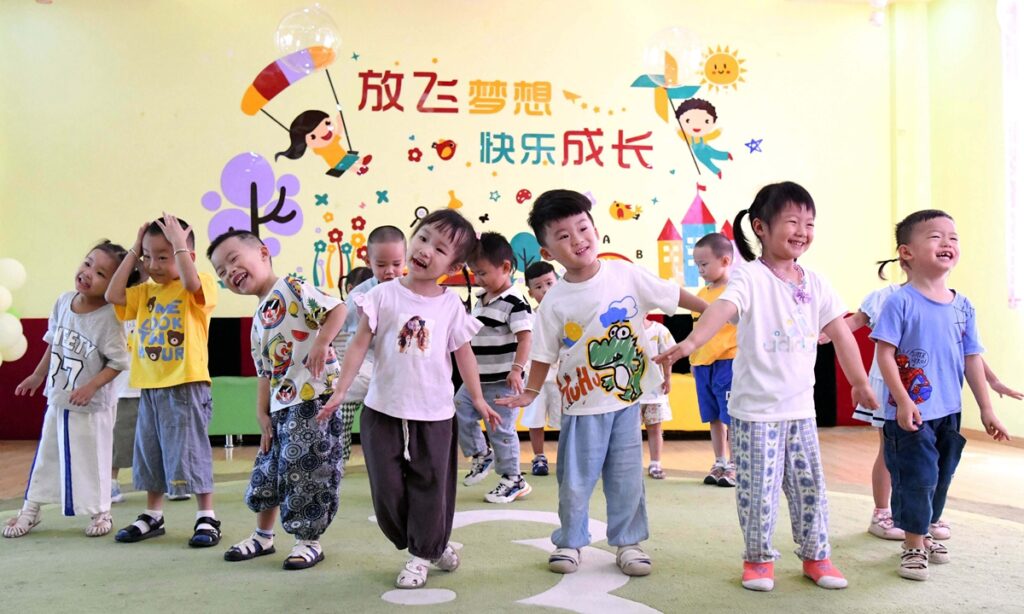The city of Zhengzhou in Central China’s Henan Province has implemented a plan to promote long-term and balanced population development. The city will provide a one-time subsidy of 15,000 yuan ($2,061) to families with three children, as part of the latest effort to stimulate childbirth, according to the city authorities on Tuesday.
Before their baby becomes 1 year old, female employees will have a minimum of two hours of breastfeeding time each day. For each child born in accordance with the law, the parents are both entitled to 10 days of parental leave each year until the child reaches 3 years old, under the plan.
Families with one child, two children, and three or more children who register the newborns in Zhengzhou will receive a one-time parenting subsidy of 2,000 yuan, 5,000 yuan, and 15,000 yuan, respectively, according to the city plan. Meanwhile, every community in the city should be equipped with a universal childcare facility by 2025, and it also plans to enhance the capacity of maternal and child health institutions in the city.
All the measures were implemented as a way to alleviate the financial burden associated with raising multiple children, and it’s hoped that these measures will incentivize couples to raise more children.
Many regions across China are accelerating the establishment of a comprehensive supportive policy mechanism to encourage childbirth, with incentives including financial benefits, tax reduction, maternity leave policies, and childcare subsidies.
Since January 1, 2023, Hangzhou, East China’s Zhejiang Province has offered child-rearing subsidies to families with a second or third child. The one-off subsidy for families with a second child is 5,000 yuan ($725), and 20,000 for those with a third child.
The city of Shenyang in Northeast China’s Liaoning Province has offered subsidies of 500 yuan per month to local families with a third child until the child reaches 3 years old.
Experts have noted that along with one-off subsidies, a series of supportive measures are needed in nurturing families with children, including the improvement of childcare systems, optimization of maternity leave policies, and the cultivation of relevant talent in areas such as maternity nurses and childcare workers.




